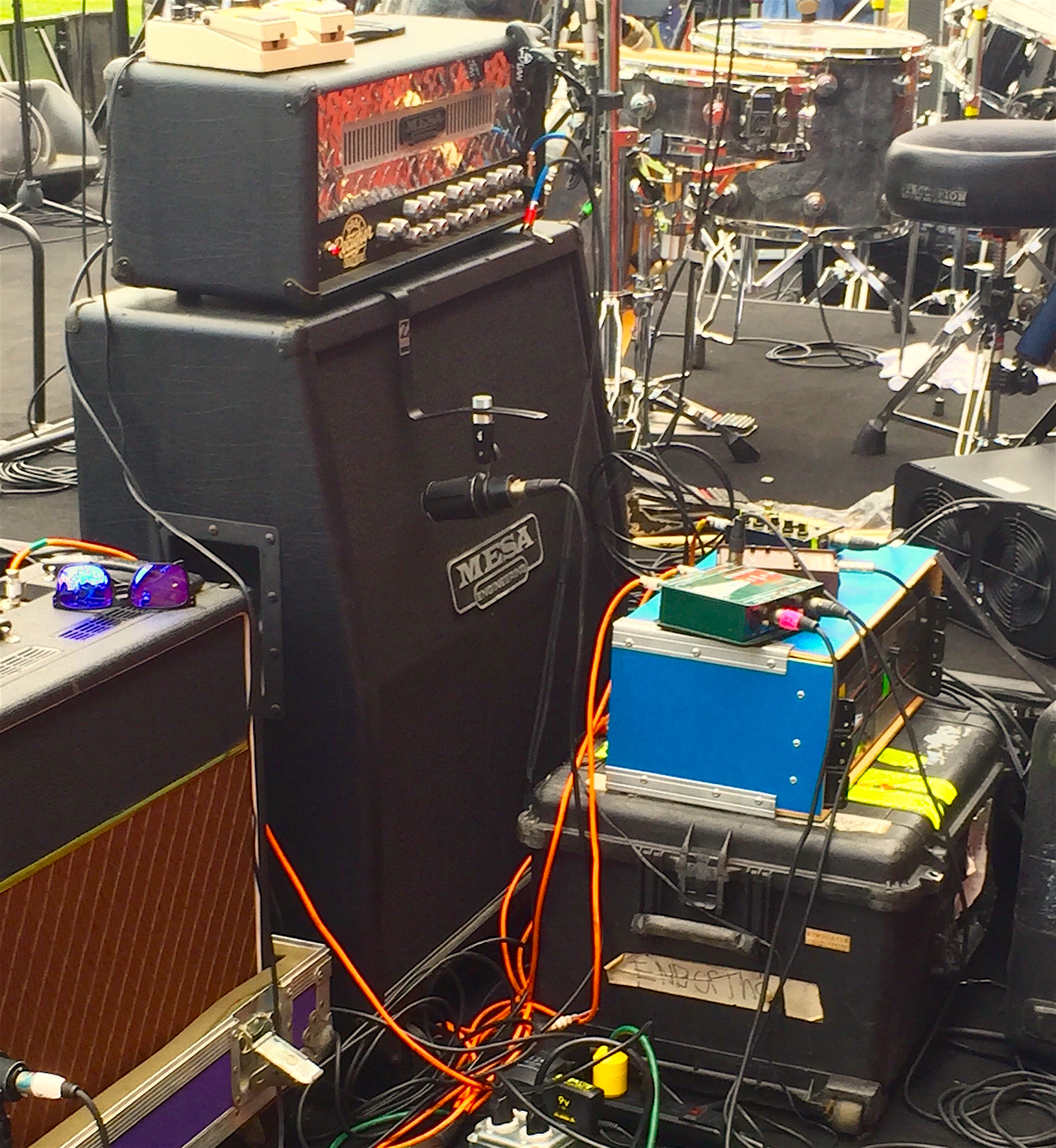Recording Session Primer: Your Band’s First Session
Recording Session Primer: Your Band’s First Session
So you and your band have worked hard. You’ve saved enough money to book time at a recording studio. All the merch sales, donations, and gigs have paid off. Well, almost. You are now entering a whole new level of band life and there is much riding on your time in front of live mics in an environment that may be brand new to you.

The capturing of the music in real time will be the ultimate barometer of your sound and furthermore, will define who you are as a unit. I’m not taking away from the fun and learning that goes on during live recording sessions, however there is much to consider as you prepare for this experience.
In order to have the session go smoothly with few snags, here are some things to consider before your studio date arrives. Go into the session with an open mind. Be flexible and open to the advice of the sound engineer and to each other. The mere act of recording can expose parts of your music that could use tweaking. Riffs that worked during your “garage sessions” sometimes do not translate well on recordings.
To m inimize such issues, ask yourself this question: Does the band have all parts worked out with no trouble spots? Does each member have a working knowledge of each other’s parts? In other words, do they know how all the pieces fit together? Is everyone capable of playing or singing what they are required to play or sing? Sometimes technical issues are masked during band rehearsals due to volume, less that idea sound in your space, and underdeveloped “hearing”.
inimize such issues, ask yourself this question: Does the band have all parts worked out with no trouble spots? Does each member have a working knowledge of each other’s parts? In other words, do they know how all the pieces fit together? Is everyone capable of playing or singing what they are required to play or sing? Sometimes technical issues are masked during band rehearsals due to volume, less that idea sound in your space, and underdeveloped “hearing”.
 inimize such issues, ask yourself this question: Does the band have all parts worked out with no trouble spots? Does each member have a working knowledge of each other’s parts? In other words, do they know how all the pieces fit together? Is everyone capable of playing or singing what they are required to play or sing? Sometimes technical issues are masked during band rehearsals due to volume, less that idea sound in your space, and underdeveloped “hearing”.
inimize such issues, ask yourself this question: Does the band have all parts worked out with no trouble spots? Does each member have a working knowledge of each other’s parts? In other words, do they know how all the pieces fit together? Is everyone capable of playing or singing what they are required to play or sing? Sometimes technical issues are masked during band rehearsals due to volume, less that idea sound in your space, and underdeveloped “hearing”.Prior to the session it may be wise to rehearse the song parts one, two, or three at a time. Have the drummer and bass play. Then add keys or rhythm guitar. After that, add vocals and harmonies. Be prepared to start your songs from different sections. If anyone in the band cannot play from any section instantly then the music is NOT memorized and precious time will be wasted and the costs will increase,
 Finally, the issue of equipment comes up. Does everyone have decent equipment to record with. More often than not, you will use what the engineer suggests. Don’t be offended if your 6 Liner (lol) amp’s sound doesn’t cut it in the studio. Are your guitar players using too much gain and distortion during rehearsal? Have you thought about cutting it down to about 3/4 of what they are used to (at least for the rhythm parts)? It’s shocking how much that will clean up your sound.
Finally, the issue of equipment comes up. Does everyone have decent equipment to record with. More often than not, you will use what the engineer suggests. Don’t be offended if your 6 Liner (lol) amp’s sound doesn’t cut it in the studio. Are your guitar players using too much gain and distortion during rehearsal? Have you thought about cutting it down to about 3/4 of what they are used to (at least for the rhythm parts)? It’s shocking how much that will clean up your sound.Remember to provide your engineer with a detailed list of your songs and the structure. If not, the clock will tick as you try in  vain to describe how each song goes. That is a gigantic time waster. Provide also each member’s role on the songs. Who sings harmonies, who plays tambourine, when does that elusive cowbell part come in?
vain to describe how each song goes. That is a gigantic time waster. Provide also each member’s role on the songs. Who sings harmonies, who plays tambourine, when does that elusive cowbell part come in?
 vain to describe how each song goes. That is a gigantic time waster. Provide also each member’s role on the songs. Who sings harmonies, who plays tambourine, when does that elusive cowbell part come in?
vain to describe how each song goes. That is a gigantic time waster. Provide also each member’s role on the songs. Who sings harmonies, who plays tambourine, when does that elusive cowbell part come in?Covering all the bases will make you a stronger member of the band now and in the future. Take away as much as you can from your experience and incorporate it into your bands operating procedure and you will see improvement and more opportunity.
Never forget that a few hours spent on firming up all details can save you hundreds of dollars and more importantly, can clean up your session in a big way!
-Mark